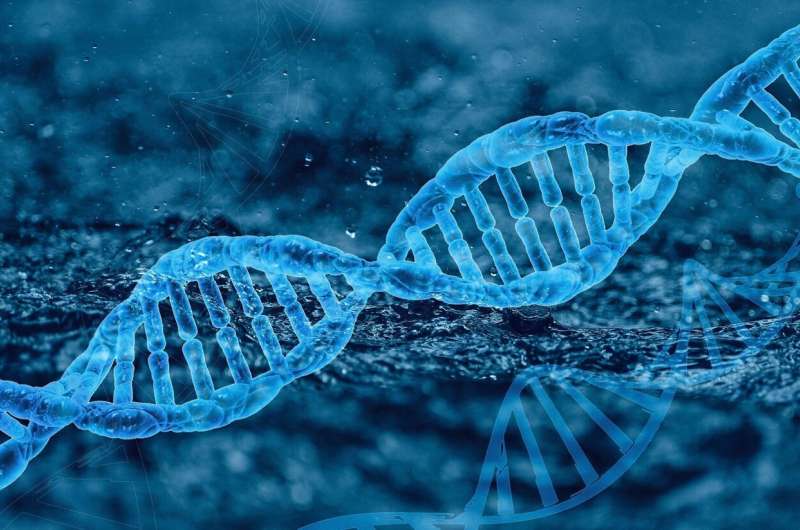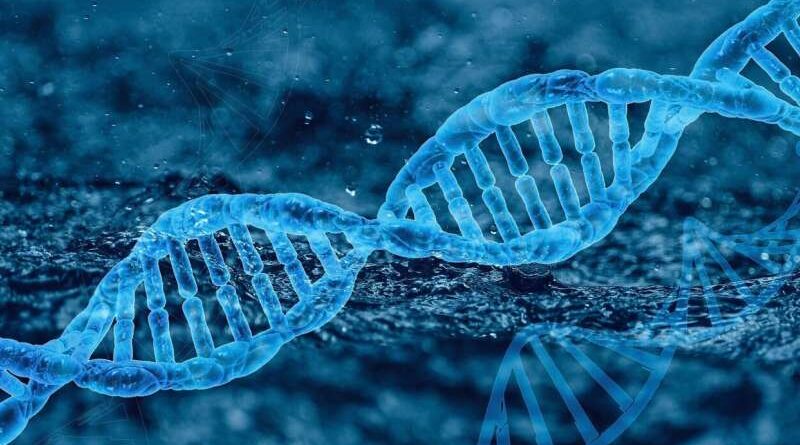Diet restriction or good genes: A new study tries to decide which has the biggest impact on health

Credit: Pixabay/CC0 Public Domain
As aging researchers like to argue, the best thing you can do to increase your life expectancy is to choose good parents. After all, it has long been recognized that people who live longer tend to have parents and grandparents who live longer, indicating that genes influence longevity.
Complicating the picture, however, is that we know that your overall lifestyle, especially diet and exercise, also affects your health into old age and how long you live. What is the contribution of lifestyle versus genetics is an open question that recent research has addressed Nature it shone a new light.
Scientists have long known that reducing calorie intake can make animals live longer. In the 1930s, it was noticed that rats fed a reduced calorie diet lived longer than rats that could eat as much as they wanted. Similarly, people who are more physically active tend to live longer. But specifically linking single genes to longevity has been controversial.
While studying the life cycle of the tiny worm C elegans at the University of California, San Francisco, Cynthia Kenyon discovered that small changes in a gene control the way cells perceive and respond to nutrients around them. caused the worms to double their lifespan. This raises new questions: If we know that genetics and lifestyle affect how long you live, which is more important? And how do they interact?
Trying to tease apart the effects of genetics versus lifestyle, a new study at Nature examined different types of caloric restriction in 960 mice. The researchers looked specifically at examples of previous caloric restriction experiments (either 20% or 40% fewer calories than mice of control), or intermittent fasting for a day or two without food (since intermittent fasting is common among people who want to see the benefits of calorie restriction).
Because we now know that small genes affect aging, the researchers used genetically different mice. This is important for two reasons. First, since laboratory studies on mice are often conducted on genetically identical mice (very!)
Second, humans are very different, which means that studies on mice that are genetically identical often do not translate to high levels of human genetics.
The main result was that genes seem to play a bigger role in health than any of the dietary restrictions. Long-lived strains of mice continued to live longer despite changes in diet.
Diet counts, but genes count more
Although the short-lived mice showed improvement due to food restriction, they did not catch up with their long-lived peers. This suggests that there is some truth to the “choose good parents” joke.
The calorie restriction regimens increased lifespan in all mouse strains, with the 40% restriction group having improved average and longest lifespans compared to the 20% group.
The 20% group showed improvements in the average of groups and a greater length of life compared to the control group, although the effects of genetics were greater than the effect of dietary habits.
Although all forms of calorie restriction resulted in an increase in lifespan in the mice on average, with the most extreme form of calorie restriction tested (40%-less group), changes could be seen as physical injuries were noted. These included reduced immune function and loss of muscle tissue, which outside of a germ-free laboratory environment can affect health and longevity. long.
There are important caveats to studies like this. First, it is not known if these results apply to humans.
As with most studies of calorie restriction in mice, the restricted feeding groups were fed 20% or 40% less than the control group who ate as much as they wanted. For people, it would be like assuming that people who eat some food every day at an unlimited buffet are “normal,” and that people who don’t eat at an unlimited buffet are practice “restricted feeding.” That is not exactly like the way people live and eat.
Second, although exercise was not controlled in any way in this study, most groups did exercise on their cage wheels, except for the 40% calorie restriction group. which ran a lot.
The researchers suggested that this increased exercise in the 40% group was mice that were constantly hunting for more food. But since this group did more exercise than the others, it can also mean that the positive effects of more exercise were also seen in this group along with their calorie restriction.
So, although we cannot choose our parents or change the genes we inherit from them, it is interesting to know that certain genes play an important role in the many years we can aspire to.
The genetic cards we deal with determine how long we can expect to live. However, as is important in this study, lifestyle strategies such as diet and exercise aimed at improving lifespan should work regardless of our genetic makeup.
Provided by Chat
This article is reprinted from The Conversation under a Creative Commons license. Read the first article.![]()
Excerpt: Food restriction or good genetics: New study tries to clear which has the biggest effect on life span (2024, October 19) retrieved on October 20, 2024 from https://medicalxpress. com/news/2024-10-dietary-restriction-good- genetics-unpick.html
This document is subject to copyright. Except for any legitimate activity for the purpose of private study or research, no part may be reproduced without written permission. Content is provided for informational purposes only.
#Diet #restriction #good #genes #study #decide #biggest #impact #health

